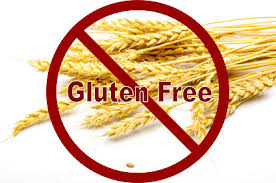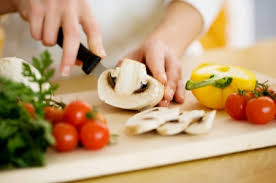How Our Diets Affect Us
Unlike most creatures, humans eat not only to satiate hunger or to replenish lost nutrients; unlike other animals, humans derive pleasure from eating culinary masterpieces. New research even suggests that eating the stuff we love activates certain chemicals in our body, rewarding us for consuming sinful goodies.
A well-balanced diet provides the human body with all the nutrients it needs for optimal physical and mental performance, enables the body to regenerate damaged cells and tissues, and even allows it to ward off or fight diseases. The ancient Greek physician Hippocrates was definitely on to something when he said “Let food be thy medicine and medicine be thy food.” It’s my philosophy I live by every day.
However, the modern diet is far from this ideal. If you look closely at the food sold at supermarkets and served in most restaurants, you’ll find that they are processed and high in saturated fats, refined carbohydrates and full of sugars. And if you add the impact of a sedentary lifestyle, high stress levels and even large portion sizes, you’ve got a veritable buffet of lifestyle diseases including heart disease, high  blood pressure, diabetes, stressed-out bodies, sleep apnoea, and many cancers.
blood pressure, diabetes, stressed-out bodies, sleep apnoea, and many cancers.
For me, what these trends suggest is the imbalance in our relationship with food. Apart from nourishing the body, food should satisfy the other needs of a person, including emotional, social and spiritual factors. Apart from replenishing the nutrients needed by the body, or even satisfying our cravings, there is a social aspect to eating. More often than not, either end of the food disorder spectrum comes as a result of losing close touch with any of these aspects of food consumption.
Sometimes, food can hurt us too.
Take the case of gluten. Over the past few years, the gluten-free diet has gained wide attention from the public. Some restaurants and food establishments like my bakery, Kelly’s Bake Shoppe and restaurant, Lettuce Love Café are now 100% whole food (healthy), gluten-free establishments.
Gluten is a type of protein found in a number of grains including wheat, barley and rye. Notice how chewy some baked products are? That’s created by gluten. It can also be found in other types of food products including chocolates, soy sauce, vitamin supplements and even toothpaste and body moisturizers.
For people with celiac disease, gluten can be considered as a curse to their existence. Even the slightest trace of this protein can trigger  adverse reactions in their bodies, including damage to the lining of their small intestines and even put them in a hospital. However, just about one percent of people may be considered to be true celiacs. The remainder have “gluten sensitivity”.
adverse reactions in their bodies, including damage to the lining of their small intestines and even put them in a hospital. However, just about one percent of people may be considered to be true celiacs. The remainder have “gluten sensitivity”.
This sensitivity comes as a result of what has been called as “gluten overload”. I tend to believe that the wheat molecule has become so highly refined, due to genetic modification, it immediately converts to a sugar once in our bodies (wreaking havoc in our gut). The wheat molecule, experts are saying, has been rendered indigestible over the past few decades for many and will cause inflammation. Consequently more and more people are experiencing health issues and symptoms like stomach pain, bloating, brain fog, heartburn, fatique and IBS. It seems like we may be in the midst of an epidemic but it is due to the onslaught of the fast food industry and how far away we are from eating whole and natural foods.
There are numerous alternatives you can adopt into your diet like brown rice, buckwheat, millet, and quinoa – as a gluten/wheat substitute. These are very simple grains to prepare. Garbanzo bean flour and fava bean flours are gluten-free flours I prefer and we use at Kelly’s Bake Shoppe for their high fibre and high protein components and at Lettuce Love Café, we use only organic brown rice and quinoa for all of our bowls.
 For me, I enjoy a 100% plant-based diet and the majority of it (maybe 80%) is centred on organic vegetables (raw, baked, grilled or roasted). The other 20% of my diet is comprised of fruit, legumes, nuts, seeds and gluten-free grains. I try to focus on my source of food and subsequently, nutrition with everything I eat and my preference is always directly from Mother Earth. I forego packaged foods (like gluten-free crackers, processed cookies and cereals, sauces, dressings, etc) and make everything I eat directly from whole ingredients and the earth. That way I know exactly what is in the food I’m eating. It’s just the way that feels good for me. I’m a naturally gluten-free eater.
For me, I enjoy a 100% plant-based diet and the majority of it (maybe 80%) is centred on organic vegetables (raw, baked, grilled or roasted). The other 20% of my diet is comprised of fruit, legumes, nuts, seeds and gluten-free grains. I try to focus on my source of food and subsequently, nutrition with everything I eat and my preference is always directly from Mother Earth. I forego packaged foods (like gluten-free crackers, processed cookies and cereals, sauces, dressings, etc) and make everything I eat directly from whole ingredients and the earth. That way I know exactly what is in the food I’m eating. It’s just the way that feels good for me. I’m a naturally gluten-free eater.
I can’t stress enough the importance of getting back into the kitchen and to be a part of the creation of our food again. To not tap into this revival of getting back into the kitchen and making our food will simply perhaps rob us of our most intimate and inherently natural things we could ever do and give to ourselves. Have fun with family and friends again…. This is inspiration! Most importantly it’s a time we could all welcome in the kitchen (the most influential room in our homes) to just be with ourselves and work on our health from the inside out. My belief is “optimal health = ultimate happiness”.
Creating a meal is creating your own reality.






1 Comment
Blessing your own food with positive intention through the love of making it is bliss for your body and soul.